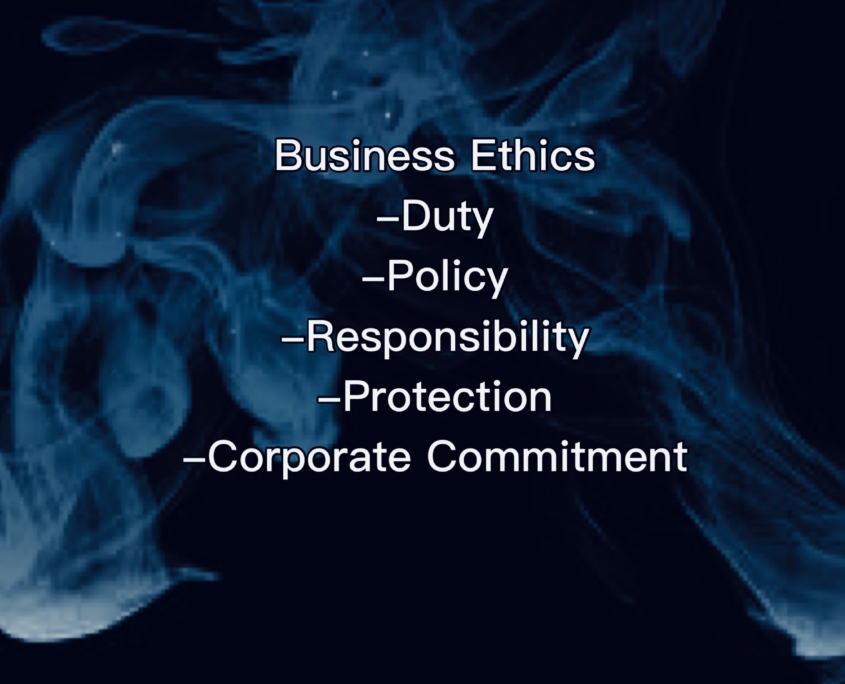Carbon Monoxide Poisonings the Result of Poor Hotel Ethics
Hotel ethics should require prioritizing carbon monoxide prevention. Unfortunately, greed and ignorance are the practice.
By Rebecca Martin
Ethics are essentially standards for the behavior of humans based on well-founded principles. Initially when one hears the word ‘ethics” different people might have a different reaction to the word. And indeed, ethics is a multi-faceted concept which encapsulates many different aspects of our existence. And yet these different facets of ethics combine to benefit the society we live in.

Hotel ethics continue to get compromised in the interest of profits, especially in the area of carbon monoxide prevention.
There are personal ethics; those standards we may hold ourselves to or religious ethics which may embody the teachings of spiritual doctrine. There are legal ethics, but following the laws of society may not always be ethical as we have seen unjust laws throughout history, and societal ethics which can fall short if a nation embarks on an unethical path. In its basic essence ethics are those rules of behavior which are a benefit for society and protect the rights of the public and uphold the obligations and benefits to society as a whole. Those rights include the right to life and freedom from injury.
Ethics are traditionally broken down into three different approaches: Virtue ethics address the moral decisions one makes as an individual and address the behavior and aspirations of a person to become basically a better human being. Consequential ethics embody cause and effect. Are my actions making the world a better place? And deontological ethics which contains that aspect I would like to consider today; our duty to others and the consequences of our actions.
There are also business ethics which embody several principles which include a concern for humanity and the welfare of society. When speaking of the hospitality industry it is important to look at the ethical balance of the drive for profit with the moral obligation to provide for the safety and well-being of hotel guests. In the hospitality industry the adherence to ethics is extremely important as an ethical approach or lack thereof is reflected in the public reputation of the business and its market competitiveness. Since most hotel chains operate on a global basis, business ethics have far-reaching consequences.
“The hospitality industry, including lodging and restaurants, serves customers who must trust in the reliability of the establishment to care for them when they are most vulnerable, providing food and a clean, comfortable safe place to sleep. Second, ethics are important to maintain standards in an atmosphere of high competition so that low performance does not become the norm.” https://www.besthospitalitydegrees.com/faq/what-is-hospitality-ethics/
Hotel Ethics Should Dictate CO Prevention
In spite of this, due to the competitive nature of the hospitality industry and the financial insecurities which have plagued the industry, greed commonly outweighs the important role of ethics that the public might be naive enough to expect. Adding to this problem is the emergence of a public view which looks at hotel chains as basically indistinguishable. The incentive of rate cuts is viewed by the hotel industry as a destabilizing component. When faced with weighing profits against ethics, greed over ethics is the pattern. Yet if one examines hotel ethics in depth the results are usually tied to dealing with theft or overworked, underpaid employees. Too many times we have talked about hotel ethics in the context on placing the emphasis on superficial improvements and technological upgrades rather than looking at the engines (such as fuel burning appliances) that run their establishments. The nuts and bolts of the building are not the sort of thing which consumers are often looking at when choosing a destination and hotel managers are well aware of that.
As a result, problems with hotel boilers and their venting systems are overlooked or addressed by individuals not truly certified to inspect or maintain them. Hotel heaters suffer from the same financial neglect. Carbon monoxide detectors are may only be legally required to be installed near boilers, hot water heaters or pool heaters in most cases. Detectors in individual rooms (where people sleep and can die) or common areas are often at the discretion of the management who may well decide that that minimal investment may be utilized in a way directly aimed at persuading the guest that their stay in their establishment as opposed to another is more comfortable or updated. Safety falls, hotel ethics fall, below these considerations.
Hotel Ethics In Reverse
In 2014, we had a chance to upgrade safety measures in hotels and other lodging venues. But those in the hospitality industry opposed mandatory detectors in individual rooms, hallways and common areas on the grounds of financial burden.
“Equipping each room with an alarm could cost the hotel industry $250 million, and alarms must be replaced about every five years, according to Tom Daly, a consultant for the American Hotel & Lodging Association.” https://www.usatoday.com/story/travel/hotels/2014/06/23/new-building-codes-carbon-monoxide/10291335/
In 2015 the new codes went into effect which eliminated a 2012 requirement that required a carbon monoxide detector in every hotel room and common area. The committee, which was comprised of experts in several fields, decided that it was more than adequate to require that detectors be placed only in the vicinity of fuel-burning devices. This decision was reached in direct opposition to the reality of the number of incidents that had occurred previously.
“A USA TODAY analysis last year that reviewed more than 1,000 news accounts found 30 instances from 2010 through early November 2012 of fire and other public-safety officials finding high levels of CO in hotels. More than 1,300 people were evacuated in the incidents.” https://www.usatoday.com/story/travel/hotels/2014/06/23/new-building-codes-carbon-monoxide/10291335/
Hotel Ethics Not Factor in Training Management
I have read multitudes of advice for people getting into the hospitality industry and how to increase profits. Not one of them mentions to check the nuts and bolts of the establishment and what is required. There is no mention of what to look for in a boiler system or how to provide the manufacturer-recommended maintenance. The checklists always emphasize the updates for the front of house, the accommodations and the availability of technology suitable to today’s customer. This comes to the forefront when we consider hotel managers who have stated they didn’t know there was a manual for the boiler or that it required inspections every six months. Or owners who relied on unqualified technicians to perform conversions or changes not approved by the manufacturer in order to save money. In many cases, although some immediate source of a carbon monoxide incident may be established, closer examination often reveals a history of ill informed decisions regarding the engines which run the hotel. So much so, that litigation becomes of morass of where to place the blame.
However, ethically, it is incumbent on the corporation and the manager to act in the most honest way of providing for public safety and wellbeing when we speak of the hospitality industry. They have opened their doors to the public and invited them to feel safe when they are the most vulnerable; sleeping in their rooms or enjoying a couple of hours at an indoor pool with our most vulnerable, children.
The Brain Injury Law Group’s first carbon monoxide lawsuit involved a case with negative pressure related CO poisoning. The hotel owner/manager, a typical Mom and Pop operation, had no idea what the warning “negative pressure” meant. See our explanation of negative pressure here. Not knowing resulted in two people receiving near fatal poisonings and ultimately cost the hotel and HVAC industries $3 million. The hotel ethics question in that case was how did people with so little knowledge of how a hotel runs, get a franchise to operate one?
CO Deaths Still Making Headlines
Do we really need to ask why hotel injuries and deaths from carbon monoxide are continuing to appear in headlines?
A few dozen guests were evacuated and one guest transported to the hospital after a carbon monoxide incident at a Deerfield Beach hotel in Florida this past week. https://hpcigar.com/deerfield-beach-hotel-evacuated-due-to-carbon-monoxide-leak-wsvn-7news-miami-news-weather-sports/ This Fairfield Inn and Suites joined the list of hotels experiencing carbon monoxide emergencies so far this year. Earlier this year several guests were transported to the hospital due to carbon monoxide poisoning resulting from a malfunction in the pool heater. Several of those transported to the hospital were children enjoying the indoor pool at an Hampton Inn in Marysville, Ohio. Two hotel guests also lost their lives at the Quality Suites in La Grange, Kentucky.
According to a study published by ScienceDirect, between 2005 to 2018, 905 guests were reported to have been in carbon monoxide incidents in a lodging environment, with 22 fatalities reported during that time period. 27 percent of the fatalities recorded were children.
“Most poisonings were caused by natural gas fueled appliances and could likely have been prevented by an in-room carbon monoxide alarm.” https://doi.org/10.1016/j.pmedr.2019.100975
Carbon Monoxide Poisoning Should be Well Understood
Neil Hampson, a carbon monoxide expert published a study in The Journal of the American Medical Association showing that carbon monoxide could travel through drywall into spaces which did not have an internal fuel-burning device.
“Carbon monoxide diffused across single-layer gypsum wallboard of 2 thicknesses, double-layer wallboard, and painted double-layer wallboard. When CO was infused into 1 chamber, the concentration reached 500 ppm within 7 minutes.” https://jamanetwork.com/journals/jama/fullarticle/1730499
The USA Today article quotes Dr. Robert Rosenthal at the University of Maryland’s School of Medicine.
“Every hotel room probably has been upgraded to a flat-screen TV in the last five years,” Rosenthal says. “If a CO alarm saves even one life, I would be in favor of seeing more of them in hotels.”https://www.usatoday.com/story/travel/hotels/2014/06/23/new-building-codes-carbon-monoxide/10291335/
This is a very simple way of summing up the conflict between ethics and greed in the hospitality industry. Charged with the safety of guests who are perhaps amongst the most vulnerable of consumers in that they are trusting to sleep in their chosen establishment, reassured by a corporate name which suggests a level of commitment to safety, the focus continues to be on the more superficial desires to please guests. As long as no legislation exists to act otherwise, stories of carbon monoxide injuries and deaths will continue. And while the ethics which could prevent these tragedies certainly exists and is recognized by the hospitality industry, it has failed to resonate with those responsible.

Leave a Reply
Want to join the discussion?Feel free to contribute!